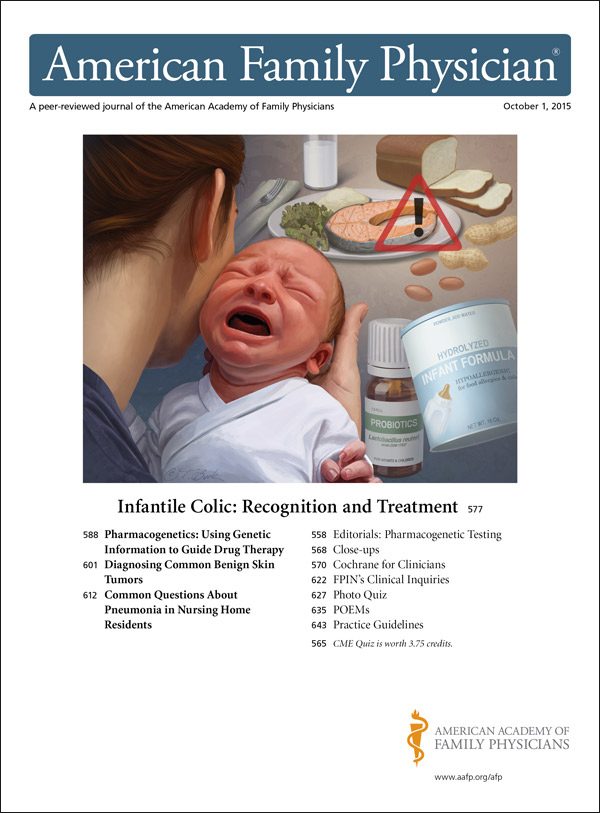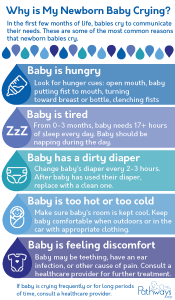Baby colic treatments include soothing techniques like gentle massage, swaddling, and using white noise. Having a baby with colic can be a challenging and distressing experience for parents.
This condition, characterized by excessive crying and fussiness, affects up to 25% of infants in their early months. While the exact cause of colic is not fully understood, there are various treatments available to provide relief to both the baby and their caregivers.
This article will discuss some effective baby colic treatments, focusing on gentle and natural techniques that can help soothe and calm the baby. From the use of gentle massage techniques to swaddling and providing white noise, these remedies have been shown to be effective in alleviating colic symptoms. By implementing these treatments, parents can find comfort in providing relief to their distressed little ones.
Understanding Colic
Baby colic is a common condition that affects infants causing excessive crying and discomfort. It can be a challenging experience for both parents and their newborns. Understanding the causes, symptoms, and treatment options for baby colic can help parents provide relief and support for their little ones. In this article, we will delve into the various aspects of baby colic and explore effective treatments that can help ease the discomfort.
What Is Baby Colic?
Baby colic is characterized by periods of intense, inconsolable crying in an otherwise healthy and well-fed infant. It typically starts around two to three weeks of age and can last up until the fourth or fifth month. Although the exact cause of baby colic remains unknown, it is believed to be the result of various factors, such as digestive immaturity, gastrointestinal discomfort, or overstimulation.
Symptoms Of Baby Colic
The symptoms of baby colic go beyond normal crying that occurs in newborns. A colicky baby may exhibit the following signs:
- Intense and prolonged crying that lasts for at least three hours a day, three days a week, for three consecutive weeks
- Crying episodes that often occur in the late afternoon or evening
- Episodes of apparent discomfort, with clenched fists, tense abdominal muscles, and flushed face
- Difficulties in soothing the baby, regardless of attempts to feed, burp, change their diaper, or offer comfort
If your baby displays these symptoms, it is essential to consult a healthcare professional for a proper diagnosis and advice on managing colic.
Understanding the causes and symptoms of baby colic is the first step towards finding effective treatments. In the following sections, we will discuss various treatment options that can provide relief for both babies and their exhausted parents. Stay tuned!
Identifying Triggers
Identifying triggers for baby colic is an essential step in finding the most effective treatment. By recognizing the common triggers and tracking your baby’s symptoms, you can gain valuable insight into what might be causing their discomfort.
Common Triggers
Understanding the potential triggers for colic can help you take proactive steps to alleviate your baby’s discomfort. Common triggers include:
- Food allergies or sensitivities
- Gas or digestive issues
- Oversensitivity to stimuli
- Maternal diet (for breastfeeding babies)
- Formula intolerance
Tracking Your Baby’s Symptoms
Keeping a detailed record of your baby’s symptoms can provide valuable information for identifying potential triggers. Consider creating a tracking log that includes:
- Times of day when symptoms occur
- Duration and intensity of crying episodes
- Feeding schedule and diet (if applicable)
- Any environmental factors that may be relevant
Natural Remedies
Explore natural remedies for soothing baby colic, including gentle massages and warm baths. Herbal teas like chamomile can also provide relief for your little one’s discomfort. Consult a healthcare provider for personalized recommendations on safe and effective treatments.
Natural remedies can be a gentle and effective way to soothe baby colic symptoms. Gentle Techniques to Try can provide comfort for babies suffering from colic. One of the methods is baby massage. Gently massaging the baby’s tummy in a clockwise motion can help relieve gas and discomfort. Another helpful technique is swaddling. Wrapping the baby snugly in a blanket can provide a sense of security and may reduce colic symptoms. Diet Adjustments for Breastfeeding Moms can also play a significant role in alleviating colic. Avoiding gas-inducing foods like cabbage, onions, and beans can help prevent colic symptoms in breastfed babies.
Gentle Techniques To Try
One of the methods is baby massage. Gently massaging the baby’s tummy in a clockwise motion can help relieve gas and discomfort. Another helpful technique is swaddling. Wrapping the baby snugly in a blanket can provide a sense of security and may reduce colic symptoms.
Diet Adjustments For Breastfeeding Moms
Avoiding gas-inducing foods like cabbage, onions, and beans can help prevent colic symptoms in breastfed babies.
Medication Options
When it comes to treating baby colic, medication options can provide relief for both infants and their exhausted parents. There are two main types of medication commonly used to alleviate colic symptoms: over-the-counter medications and prescription medications. It’s important to note that before considering any medication, consulting with a healthcare professional is essential to ensure the proper dosage and safety for your baby.
Over-the-counter Medications
Over-the-counter medications can be easily purchased without a prescription and are commonly used to manage baby colic symptoms. These medications are often available in liquid or drop forms, making it easier to administer to infants. However, it’s crucial to read the labels carefully and follow the recommended dosage for your baby’s age and weight.
Simethicone drops, a common over-the-counter medication, can help alleviate gas-related discomfort that often accompanies colic. It works by reducing the surface tension of gas bubbles in the stomach, making them easier to pass through the digestive tract. Be sure to check with your healthcare provider for appropriate use and dosing instructions.
Probiotics, available in powder or liquid forms, can also be beneficial in managing colic symptoms. These supplements contain healthy bacteria that may help balance the gut flora, potentially reducing colic episodes. Seek medical advice for the appropriate probiotic strain, dosage, and administration method for your baby.
Prescription Medications
Prescription medications are usually recommended for more severe cases of baby colic or when over-the-counter options fail to provide sufficient relief. A pediatrician may prescribe these medications after a thorough evaluation of the baby’s symptoms and overall health. It’s important to follow the prescribed dosage and duration precisely.
A common prescription medication used to treat colic is antispasmodic drugs. These medications work by relaxing the muscles in the intestines, potentially reducing gastrointestinal spasms and discomfort.
In some cases, a pediatrician may recommend low-dose antidepressants, such as selective serotonin reuptake inhibitors (SSRIs). Although not specifically approved for colic treatment, these medications may be prescribed to manage the associated symptoms, such as irritability and excessive crying. It’s crucial to discuss the potential risks and benefits with your healthcare provider before considering this option.
Remember: Medication should always be administered under the guidance and supervision of a qualified healthcare professional. Each baby is unique, and their specific medical condition and needs should be assessed before starting any medication.
Probiotics And Colic
The Role Of Probiotics
Probiotics can help ease colic symptoms in babies by promoting a healthier gut flora.
Babies with colic may benefit from the introduction of good bacteria to balance their digestive system.
Choosing The Right Probiotic Supplement
- Look for probiotic supplements specifically designed for infants to ensure safety and efficacy.
- Consult with a pediatrician to find the most suitable probiotic strain for your baby.
- Ensure the product is formulated to address colic symptoms and is free of any harmful additives.

Massage And Comforting Touch
Baby massage and comforting touch can be effective methods for providing relief to colicky infants. These techniques can help ease the discomfort and distress associated with colic, promoting relaxation and aiding in digestion.
Benefits Of Baby Massage
- Promotes relaxation for the baby
- Helps improve digestion
- Enhances parent-baby bonding
- Reduces stress and discomfort
Techniques To Comfort A Colicky Baby
- Gently massage the baby’s abdomen in a clockwise motion
- Use soothing strokes on the back and tummy
- Hold the baby close and provide gentle rocking motions
- Offer a warm bath followed by a gentle massage
Creating A Calm Environment
Managing stress and anxiety, as well as establishing a soothing bedtime routine, are key factors in creating a calm environment for a baby experiencing colic. Babies are highly sensitive to their surroundings, and creating a peaceful atmosphere can help alleviate their symptoms and provide comfort.
Managing Stress And Anxiety
Stress and anxiety can exacerbate colic symptoms in babies. As a caregiver, it’s important to manage your own stress levels, as babies can pick up on their caregiver’s emotions. Consider the following tips to help create a calm and relaxing environment:
- Avoid loud noises and sudden movements that might startle the baby.
- Find time for yourself to relax and unwind, whether it’s reading a book or taking a warm bath.
- Engage in stress-reducing activities, such as deep breathing exercises or gentle yoga.
Establishing A Soothing Bedtime Routine
A consistent bedtime routine can help signal to the baby that it’s time to relax and prepare for sleep. Consider incorporating the following elements into the routine:
- Dim the lights in the room to create a calm and serene atmosphere.
- Give the baby a warm bath to help soothe their muscles and relax their body.
- Massage the baby before bedtime using gentle and rhythmic strokes.
- Play soft and soothing music or use white noise to create a calming background sound.
- Read a soothing bedtime story to the baby, using a soft and gentle voice.
By managing stress and anxiety and establishing a soothing bedtime routine, you can create a calm environment that promotes relaxation and comfort for your baby. Remember, every baby is unique, so feel free to customize the routine based on what works best for your little one.
When To Consult A Doctor
For baby colic treatments, consulting a doctor is advisable if symptoms persist or intensify. It’s important to seek professional guidance for appropriate treatment options tailored to your baby’s needs. Experienced medical advice can provide relief and peace of mind for both parent and child.

How Can I Help My Baby With Colic?
To help your baby with colic, try gentle tummy massages and carrying them upright. Offer smaller, more frequent feedings and try a pacifier. Create a soothing environment with white noise and swaddle them snugly. Lastly, stay calm and provide comfort during fussy episodes.
How Long Does Colic Last For A Baby?
Colic in babies typically lasts until around 3-4 months of age, improving gradually over time.
What Is The Best Medicine For Colic Babies?
The best medicine for colic babies is simethicone drops or gripe water. Both are safe and can help relieve gas and discomfort. Always consult your pediatrician before giving any medication to your baby.
How I Cured My Baby’s Colic?
I successfully cured my baby’s colic by trying different remedies such as gentle motion, tummy massages, and breastfeeding on demand.
Conclusion
Effective treatment options for baby colic can greatly relieve the distress both for the baby and the parents. From dietary changes and soothing techniques to alternative therapies, there are various approaches to consider. By understanding the potential causes and symptoms of colic, parents can make informed decisions on which treatment methods may work best for their little one.
Remember, always consult a healthcare professional for personalized advice and guidance on managing colic.





